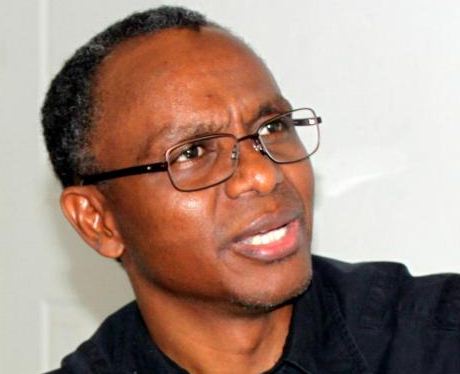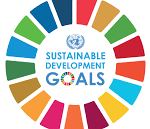OPINION: Nigerians Are Contented with Little
Articles/Opinion, Latest Headlines Tuesday, February 2nd, 2016
By Owei Lakemfa
BALTIMORE, MD (AFRICAN EXAMINER) – I am not a fan of Kaduna State Executive Governor, Nasir El-Rufai. I find him rather brash. Even with some of my friends serving in his government, I did not think highly of administration. Then last week, I got a call from a close friend. He said his extended family in Kaduna who run a private school is thinking of phasing out conventional education and taking a different course. The reason is that most of its students have moved en-mass to public schools. But he says his family school is not the only private one limping; a number of others are tottering at the point of collapse for the same reason.
After many years of having faith in private schools and paying exorbitant fees, what persuaded parents to become such proselytes? First in a number of schools, the El-Rufai administration took back school lands and restored their environmental sanity. Then it began the renovation of schools, bought new furniture and embarked on the recruitment of teachers irrespective of their state of origin. Finally, it sealed the fate of many private schools by introducing free feeding in public schools.
So for parents, the standards in public schools have risen sharply with good teachers, better learning environment, free feeding for their children, and money they used to pay in private schools, saved. This I think is the primary reason for increased enrolment in public schools. The government will then need to embark on a sustained enrolment drive.
The El-Rufai education policy reinforces my basic position that the primary duty of government is service not a worship of market forces, waste of public resources or lamentation. In Kaduna State, parents can see in practice what some of the state resources are being used for; the education policy is impactful and the citizens are directly benefiting.
Contrast this with the building of airports some states have embarked on; this can be beneficial to only a handful of elites; but investing in education and basic peoples welfare like affordable mass housing will be beneficial to the majority.
What is going on in Kaduna State reminds me of the Nigeria of my childhood when the best schools were the public schools. Those were the days when the competition to be admitted into public schools was so stiff that the family of any child that fails, is thrown into mourning. It meant that such a child may have to spend a year at home. The alternative was for the child to go to a private school which was not only inferior, and in the case of Lagos State “unapproved” but parents will also have to pay costly school fees while the public schools were virtually free.
Same was the case for tertiary education where in fact, there were virtually no private institutions. Although public, the standard of our education was so high that we competed favourably with the best schools in the world. With a strong economy and currency – that was when the dollar was equivalent to 68 Kobo – our universities attracted some of the best academics in the world. Our education standards were so high that the government in the late 1970s advised Nigerians not to go to American or Indian universities which were considered inferior; their degrees were adjudged to be the equivalent of the Higher School Certificate (A-Levels) My dream is for us to return Nigeria to those glorious days.
Another hope I have is for the return of sanitary inspectors and for government at all levels to resume their responsibility of cleaning our roads, drainage and returning public refuse bins and incinerators to our neigbourhood. I recall in days not too far gone when sanitary inspectors visited households, ensured good environmental sanitation especially where food for the public was sold. People may snigger that I am asking governments that are owing Minimum Wage, to employ sanitary inspectors; but this will be far cheaper than fighting Lassa fever.
I commend the enlightenment campaign that Nigerians should cover their food so rats will not eat from them and thereby spread Lassa fever; but why should we cohabitate with rats in the first place? As the largest economy in Africa and the continent’s giant, is it not disgraceful that following the Lassa fever resurgence, some 1,400 rats were killed in one market alone? Why must our markets, motor parks, drainage and streets be haven for rodents?
Abuja is said to be very clean, but that is just the city; its satellite towns like Nyanyan tell a different story; the story of neglect and abandonment. I chuckled last week when the Bwari Area Council suggested a return of monthly sanitation to counter Lassa fever. That is a Council that cleans no streets, provides no public bins or refuse incinerators. In its areas of jurisdiction, like from Ushafa through Pambara to the National War College Camp, refuse overflow, occupying half of the road. In those places, rodents can be seen playing World Cup matches.
We do not need to wait for Lassa fever before eliminating rodents; it should be taken for granted that our rivers, cities and villages should be clean. Didn’t they say that cleanliness is next to godliness?
I long for the olden days when our country was innocent. But of course not all of the past. When I was young, many did not use the banks; to them, banks were meant for the elites and the rich. Things have changed for the better and we thank God. But with the growing uncertainties about our financial policies including the imposition of new taxes like stamp duty, I fear many Nigerians may return to pillow banking; keeping their hard earned money under their pillows and beds. My favourite German writer, Bertolt Brecht advised that before you go forward, first go back to seek direction. Nigerians are not asking for the moon; they will be contented with little gestures like standard, free and accessible education for their children.
Related Posts
Short URL: https://www.africanexaminer.com/?p=29892





















